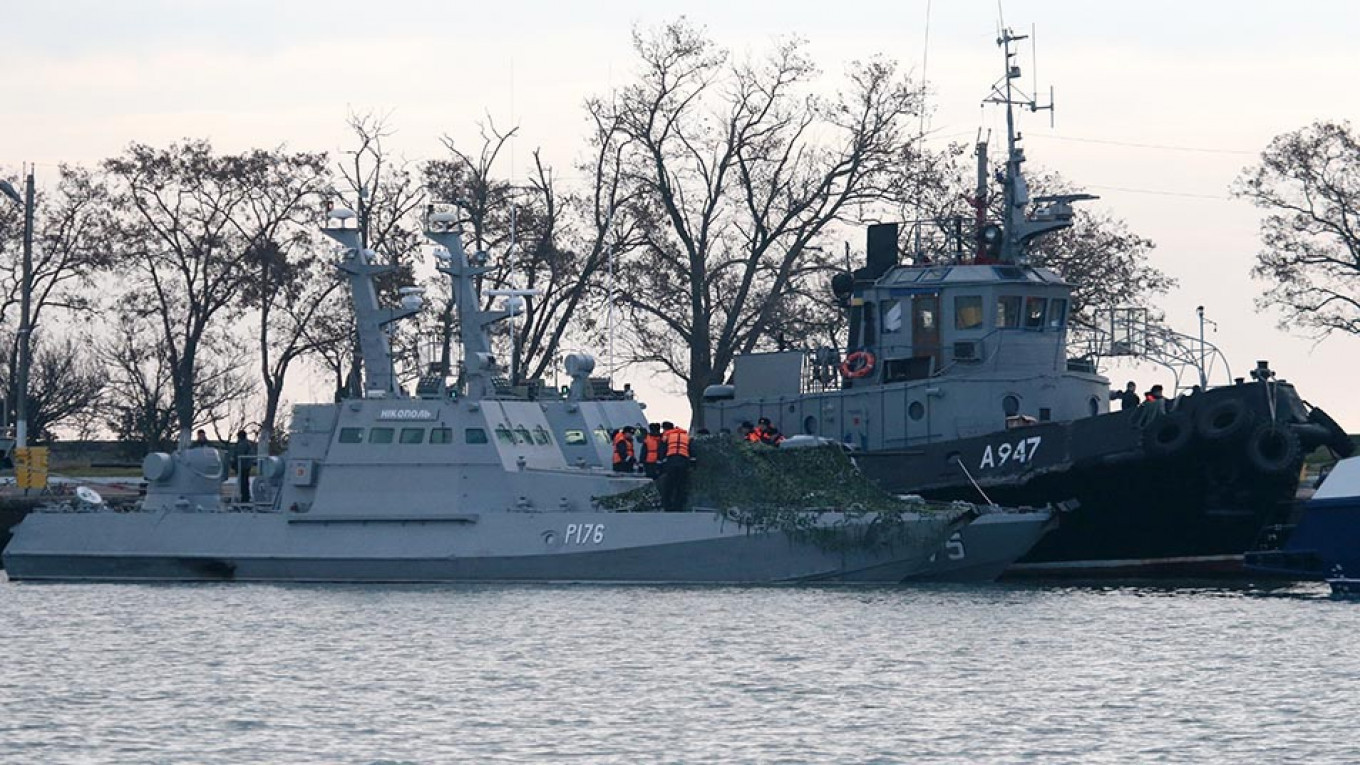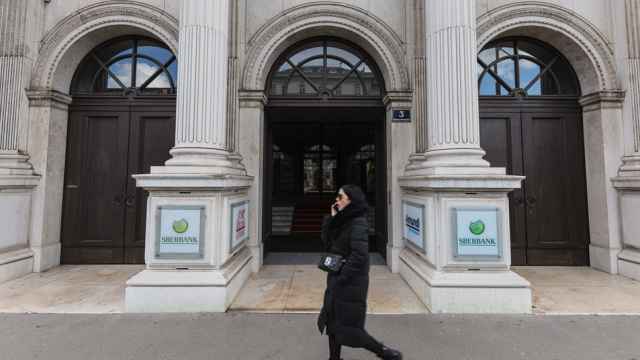Ukrainian naval ships, captured by Russia last November and released on Tuesday to be returned to Ukraine, are in very poor condition and cannot move independently, the commander of Ukraine's navy said on Wednesday.
Russia seized three ships in the Kerch Strait last year after opening fire on them and wounding several sailors. Moscow said the ships — two small Ukrainian armoured artillery vessels and a tug boat — had illegally entered its territorial waters. Kiev denied that.
The dispute has caused friction between Moscow and the West, which has backed the Ukrainian position that the ships should not have been held. The Kerch Strait, which separates mainland Russia from Crimea, is the only outlet from the Azov Sea, where Ukraine has major cities and ports, and Ukraine says it cannot be denied access.
Ukrainian navy chief Vice Admiral Ihor Voronchenko told Ukrainian television's '4th channel' the ships had not yet reached Ukrainian territorial waters because they were being towed so slowly.
"They do not go on their own. The Russians ruined them — even took off lamps, power outlets and toilets. We will show the whole world the Russian barbarism towards them."
President Volodymyr Zelenskiy is due to greet the ships in the port of Ochakiv in the southern Mykolayiv region.
Moscow returned the sailors who had been on board the ships to Ukraine in September as part of a prisoner exchange.
The release of the ships took place ahead of a four-way peace summit on eastern Ukraine set for Dec. 9 in Paris. The leaders of France, Germany, Russia and Ukraine will meet in an attempt to advance efforts for a peaceful resolution to the conflict that has killed more than 13,000 people in five years.
This article was originally published by Reuters.
A Message from The Moscow Times:
Dear readers,
We are facing unprecedented challenges. Russia's Prosecutor General's Office has designated The Moscow Times as an "undesirable" organization, criminalizing our work and putting our staff at risk of prosecution. This follows our earlier unjust labeling as a "foreign agent."
These actions are direct attempts to silence independent journalism in Russia. The authorities claim our work "discredits the decisions of the Russian leadership." We see things differently: we strive to provide accurate, unbiased reporting on Russia.
We, the journalists of The Moscow Times, refuse to be silenced. But to continue our work, we need your help.
Your support, no matter how small, makes a world of difference. If you can, please support us monthly starting from just $2. It's quick to set up, and every contribution makes a significant impact.
By supporting The Moscow Times, you're defending open, independent journalism in the face of repression. Thank you for standing with us.
Remind me later.






